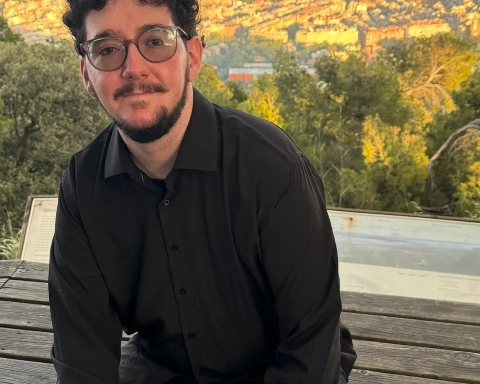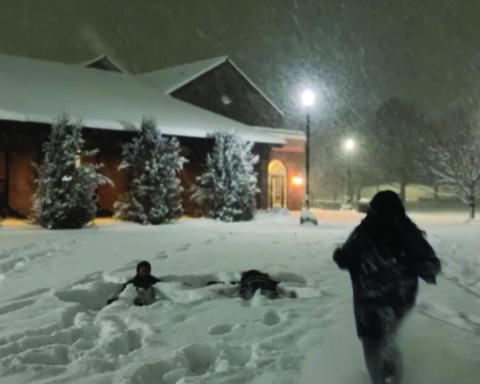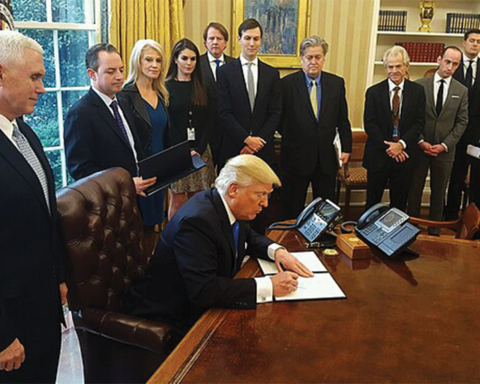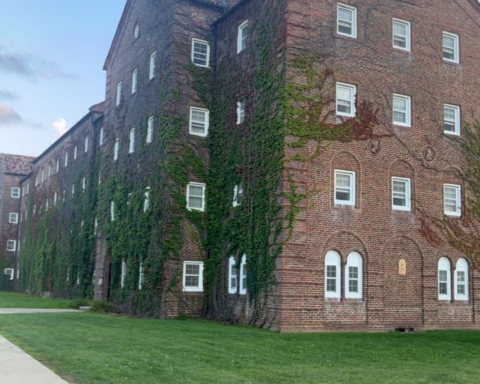By Anahiz Rivera, Contributing Writer
October 31, 2017 marked the 500th anniversary of the Reformation, which is when Lutherans celebrate breaking away from the Roman Catholic Church in the 16th century.
The day prior, a social gathering was held by Fr. David Couturier, dean of the School of Franciscan Studies, and Anne Foerst, Ph.D., head of the computer science department and individualized major program, in the Great Room of the McGinley-Carney Center.
Foerst moved to the United States in 1995, but she is originally from Germany, where Lutheranism is heavily prevalent, since Martin Luther founded Lutheranism. Fr. David and Foerst, two religious experts, talked about the importance of this particular anniversary of the Reformation. It is the first time that Catholics are also celebrating.
“To Catholics, Reformation means heresy, scandal and ugly rhetoric,” said Fr. David. “However, the pope has instructed that all Catholics celebrate this year in attempt to gather and celebrate God’s gifts together.”
In the past, Catholics and Lutherans could not set aside their differences.
“The doctrine of justification was the major theological obstruction between the two religions,” said Fr. David.
Under this justification, Lutherans who follow God believe that God does not judge them, so they rejoice because God loves and accepts them for how they are. They do not earn God’s love because it is unconditional.
“We do good deeds through the grace of God,” said Foerst. “Therefore, we should not be proud of them. And sin is universal; sin joyfully and accept it and live your life. Because God’s justice makes us just.”
Both religions believe in God, but they follow him in different ways. For example, Catholics look down upon sin, rather than welcoming it like Lutherans. Their viewpoints on life also differ greatly.
“Lutherans believe in the fallenness of all creation,” said Foerst, who has her doctorate in theology. “But, Catholics believe in following this principle of sacramentality, which means that they think beauty was put into everything as a reflection of God. We Lutherans, however, see the bad and the ugly.”
However, the two religions are coming together to celebrate this Reformation because, as this discussion revealed, the two religions actually aren’t that different.
“We mostly use the same Bible,” said Foerst. “We all believe that God became human to understand the human mind. The only differences are that only bishops are recognized by Lutherans, Catholics follow the Pope, we sing different songs, and we say different things for confession.”
Through a process of realization, these two religious organizations chose to work toward unification and relieve any existing tension between them.
“The doctrine of justification is no longer there,” said Fr. David. “The Holy Spirit wants us in one union, but that may not be possible. Because how can communion be taken as a symbol of unity if we are not united? That’s why we had this discussion. We understand that as a Catholic school, some students don’t feel welcome to participate in religious activities. We want to invite more Protestant students to join in.”
This anniversary of the Reformation is significant, not only because it is the 500th, but also because Catholics and Lutherans are putting their difference aside and coming together to celebrate it.





